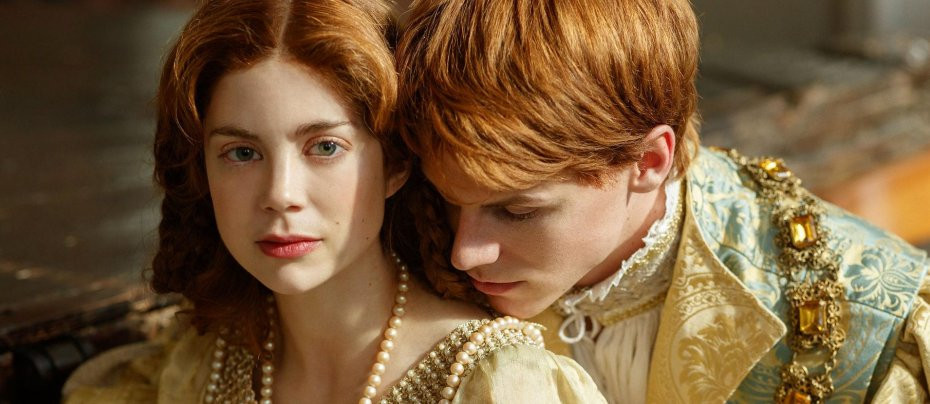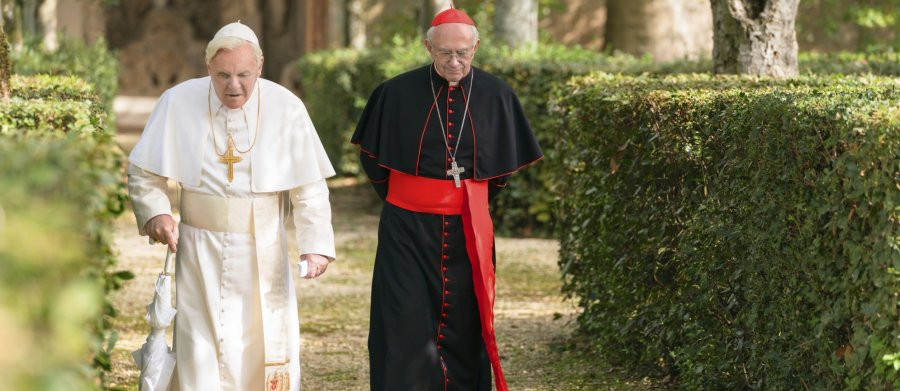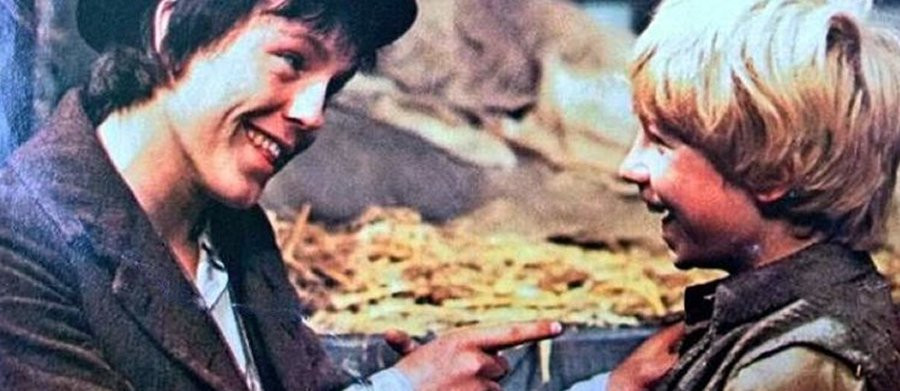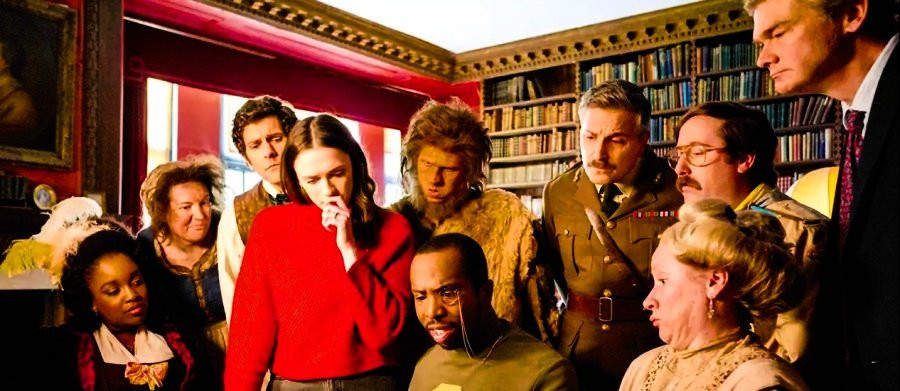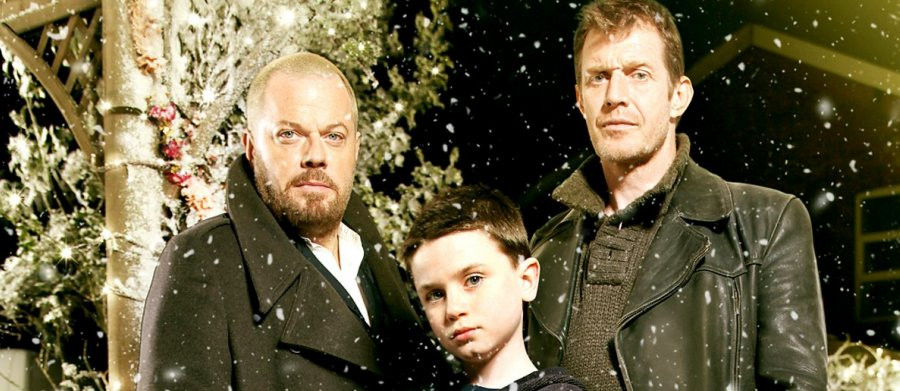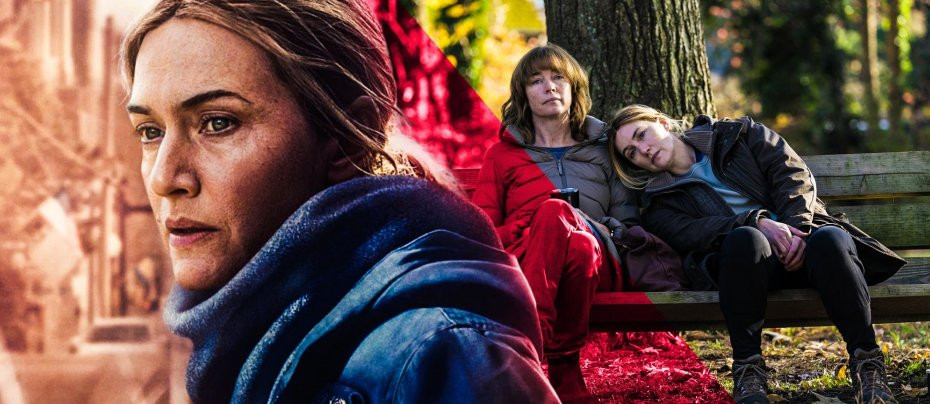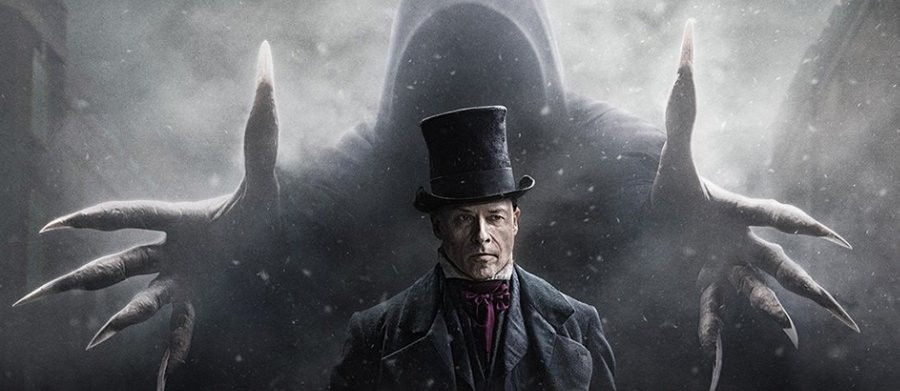
A Christmas Carol
2019 - United KingdomReview by Daniel Tessier
There are now dozens of screen versions of A Christmas Carol, the beloved 1843 novella by Charles Dickens. No work of literature has had a greater influence on the image of Christmas than this haunting yet uplifting ghost story. With so many adaptations over the decades, many different styles have been tried, some faithful, others wildly divergent, some aimed at children, others at adults. To make a new version stand out is a difficult task indeed.
The BBC's latest retelling, a three-part serial shown on consecutive nights (22 December to Christmas Eve in the UK, two days earlier on FX in the US) was written by Steven Knight (Dirty Pretty Things, Peaky Blinders) and directed by Nick Murphy (Primeval, Paddington Green). Knight is also credited as executive producer, along with several others that include Ridley Scott and Tom Hardy – an impressive pedigree. Difficulties in early production led to notable changes; Hardy was originally slated to appear in the serial in an undisclosed role, but is not in the final version, and Rutger Hauer was cast as the Ghost of Christmas Future, before pulling out due to illness (he sadly died in July 2019).
Nonetheless, Knight's vision of the story is very distinctive, and whatever changes may have been forced upon him, it's still a unique take on the book. Guy Pearce stars as Ebenezer Scrooge, a huge casting coup for the BBC; a genuine movie star. Although quite a bit younger than Scrooge is usually portrayed – only fifty-one during filming – Pearce is remarkably good as the cold-hearted Scrooge. He brings a good deal of sympathy to the role, which is something of a feat, considering how truly loathsome this version of Scrooge is.
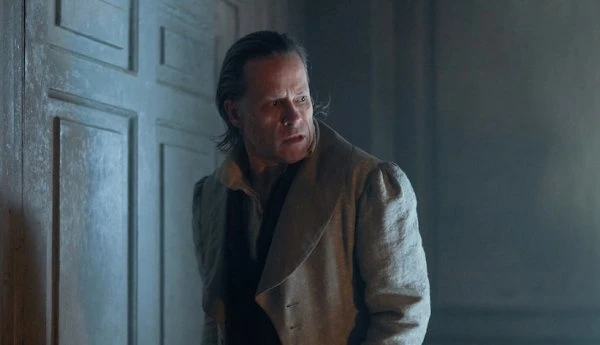
Scrooge has always been an unpleasant character. That's entirely the point. Never before, though, has he been so vehemently cruel that he truly seemed beyond redemption. However, Knight's A Christmas Carol features a Scrooge who is not merely greedy, but callously manipulative and sadistic. Rather than a mere moneylender, in this version of events Scrooge, along with his partner, Jacob Marley, is an investor and asset-stripper, who scams people into selling their companies cheap and cuts costs at the expense of lives. It's indicative of an adaptation that seem desperate to be as dark and edgy as possible.
In the book, Scrooge's father is distant and greedy; here, he is openly abusive. Scrooge's time at school is not merely lonely, but truly harrowing, as he is sexually abused by his schoolmaster. It's a deeply cynical take on the story, written to shock rather than instruct or entertain. Were there an award for “The most gratuitous use of the ‘f word’ in A Christmas Carol,” this would be the winner, and presumably the only entrant.

It's a shame, because the serial is beautifully realised, with a fantastic cast. The stand-out is Vinette Robinson (Sherlock, Doctor Who, Black Mirror) as Mary Cratchit, wife of the hard-done-by Bob. Unlike most adaptations which barely feature Mrs Cratchit, here she is perhaps the most significant character aside from Scrooge, and the focus of his cruelty. When she needs money for an operation for Tiny Tim (beautifully portrayed by Lenny Rush), Mary asks Scrooge for a loan. He agrees to provide her with money in return for sexual favours – not because he wants any such thing from her, but just to prove how far she'll stoop for the money. It's a scene that exists purely to make us hate this version of Scrooge absolutely.
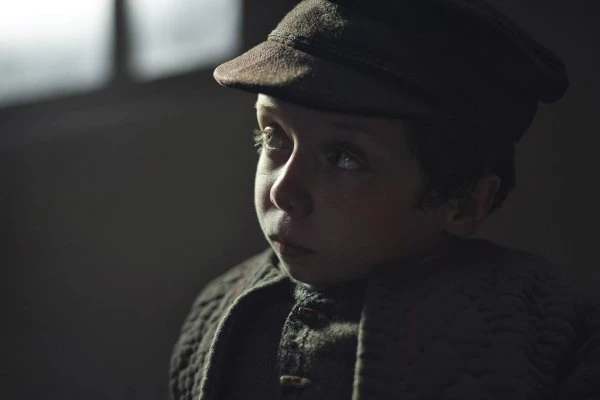
Another character who appears more extensively than in the book is Marley, played by Stephen Graham (This is England, The Irishman). Although not unprecedented, it's rare that Marley's character and background are explored, but in this version, much of the first episode is told from his perspective, as he works with the Ghost of Christmas Past to connive to convert Scrooge. The first of the three ghosts is the one whose appearance in the novella is hardest to pin down, and it follows that he/she is the one who's depiction varies the most on screen. Here, he is played by Andy Serkis (forever Gollum in The Lord of the Rings and The Hobbit, and sundry other creatures), putting in a characteristically strong performance as an ancient, grizzled ghoul. He's a commanding presence, which is for the best, as we spend a lot of time with him.
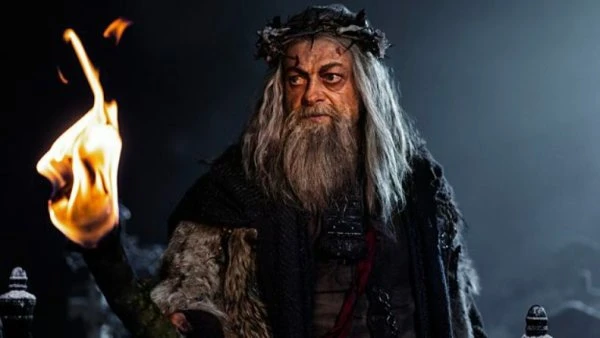
Scrooge isn't even visited by the Ghost of Christmas Past until the second episode, and his tour of his own personal history carries on long into the third. From there, his time with the other two ghosts is covered rapidly. Charlotte Riley (Peaky Blinders, Wuthering Heights, 2009) portrays the Ghost of Christmas Present, here appearing in the form of Scrooge's elder sister. Renamed Lottie (I guess Fanny doesn't work so well in a modern setting), Scrooge's sister also gets an expanded role compared to the book. Again, neither this nor her appearance as a ghost is unprecedented, but it works well and makes a strong impact.
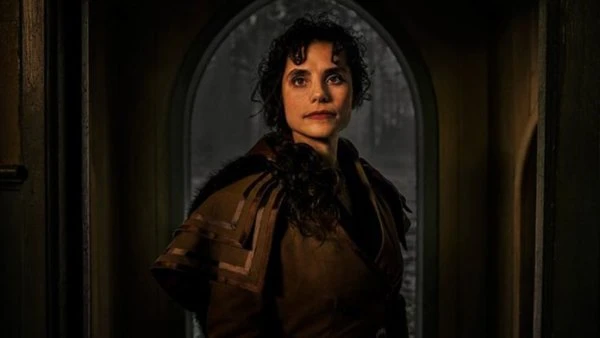
By the time we get to the Ghost of Christmas Yet-To-Come, the runtime is rapidly running out and we positively dash through Scrooge's future. Still, the final ghost is generally the most frightening, and Jason Flemyng's (Primeval, Black Mirror) depiction is among the most haunting of all, a cadaverous creature with a sewn-up mouth (for no man may hear his future).
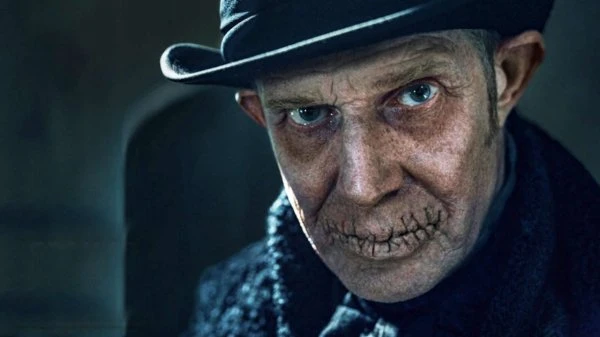
Throughout, the Victorian setting is portrayed in muted tones, with a sense of hopeless desolation pervading everything. It's a triumph of design and direction, certainly one of the most chilling depictions of the story ever. Yet the original story, for all its horror elements, was fundamentally a positive story, with humour and above all a joyful, triumphant ending. Here, after three long episodes of sheer misery, we achieve an anti-climax that essentially gives Scrooge a pass for now, but acknowledges that he's still basically terrible.
For all its technical excellence, Knight's A Christmas Carol misses the whole point. Perhaps someone can teach him the meaning of Christmas.
About the Writer of this review, Daniel Tessier
Dan describes himself as a geek. Skinny white guy. Older than he looks. Younger than he feels. Reads, watches, plays and writes. Has been compared to the third, fourth, fifth, sixth, seventh, eighth, tenth, eleventh and twelfth Doctors, and the Dream Lord. Plus Dr. Smith from 'Lost in Space.' He has also had a short story published in Master Pieces: Misadventures in Space and Time a charity anthology about the renegade Time Lord
Dan's web page can be here: Immaterial
Seen this show? How do you rate it?
Seen this show? How do you rate it?
Published on January 19th, 2020. Written by Daniel Tessier for Television Heaven.


